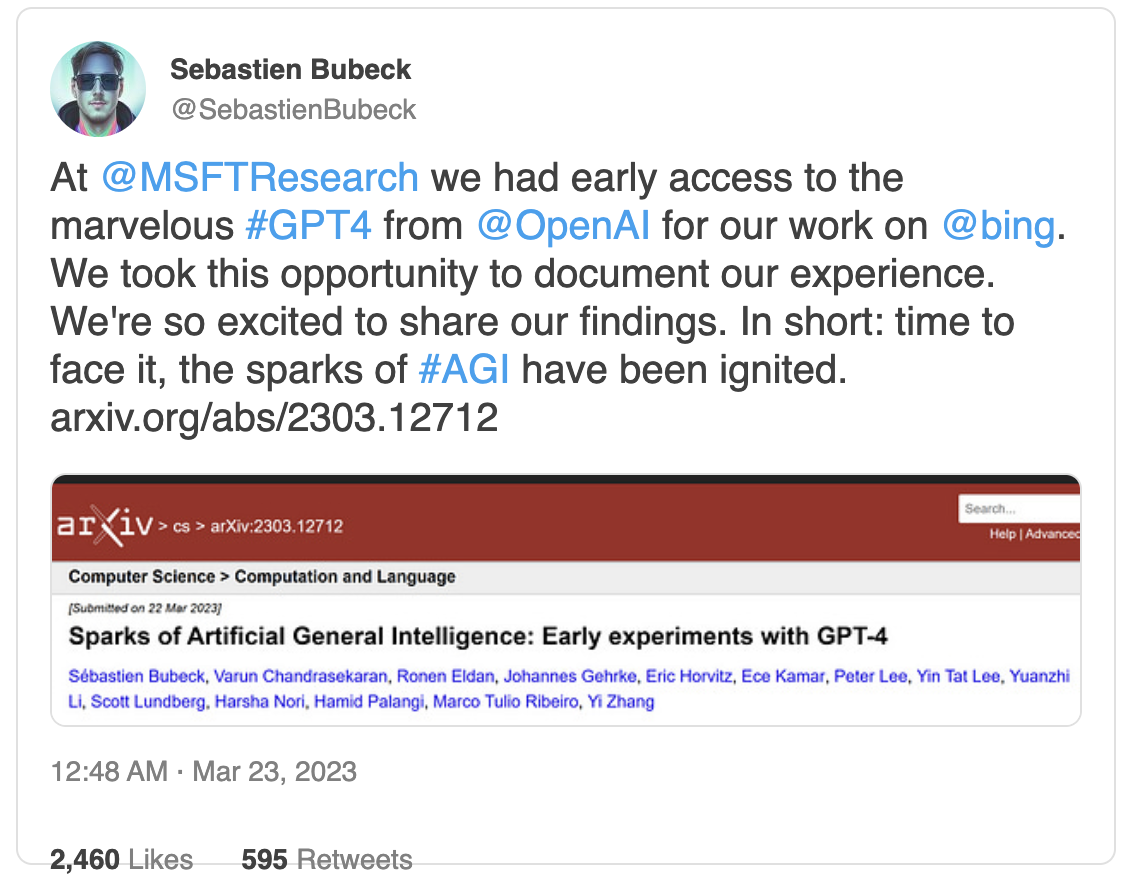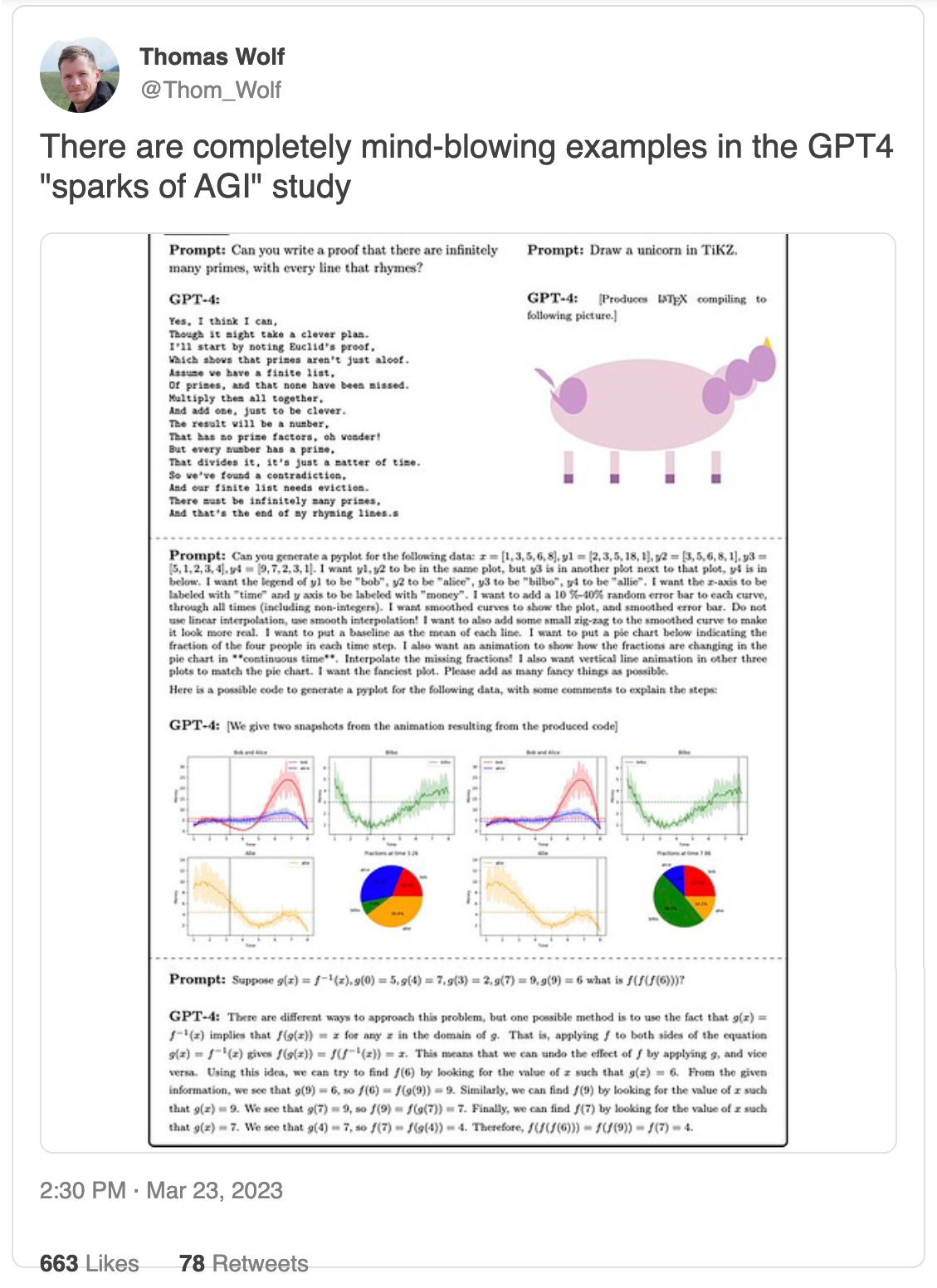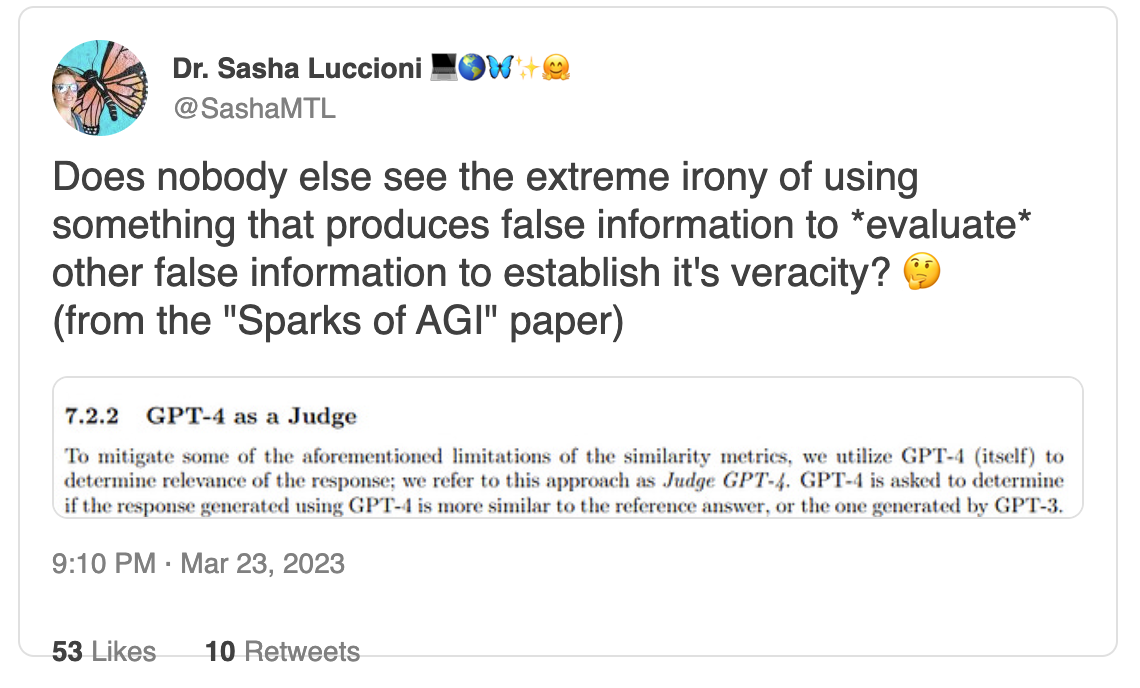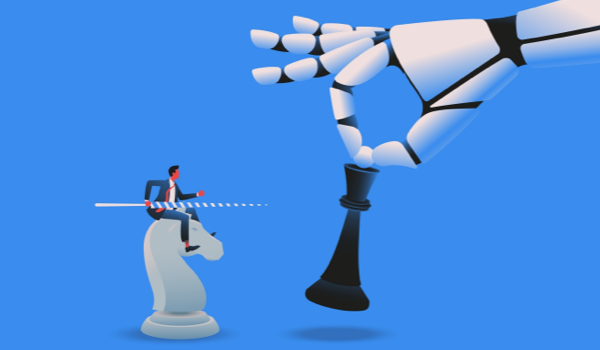


VANCOUVER, CANADA -
This article has been adapted from the original version, which can be found on Gary Marcus' Substack.
Last week, Microsoft put out a press release - masquerading as science - that claimed that GPT-4 was “an early (yet still incomplete) version of an artificial general intelligence (AGI) system.” This is a silly claim, given that it is entirely open to interpretation - could a calculator be considered an early yet incomplete version of AGI? How about Eliza, or Siri? A claim like this would never survive serious scientific peer review. Still, in case anyone missed the point, Microsoft then put out another similar and even more self-promotional tweet:

As one might expect, this was accompanied by the usual gushing from fans:

Fortunately, there were also some solid critical points made:

Rather than just giving this the usual critical blow-by-blow, there is a deeper issue here that needs to be looked at. As I have said before in previous articles, GPT-4 does not actually have that much to do with AGI. The strengths and weaknesses of GPT-4 are qualitatively the same as before. The problem of
The content herein is subject to copyright by The Yuan. All rights reserved. The content of the services is owned or licensed to The Yuan. Such content from The Yuan may be shared and reprinted but must clearly identify The Yuan as its original source. Content from a third-party copyright holder identified in the copyright notice contained in such third party’s content appearing in The Yuan must likewise be clearly labeled as such. Continue with Linkedin
Continue with Linkedin
 Continue with Google
Continue with Google










 1053 views
1053 views







